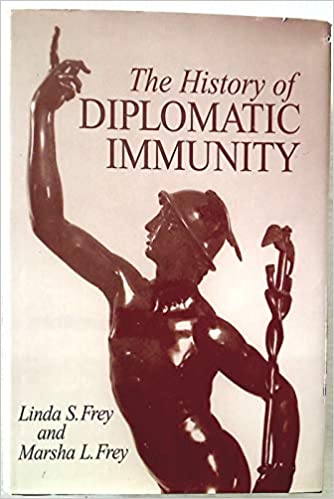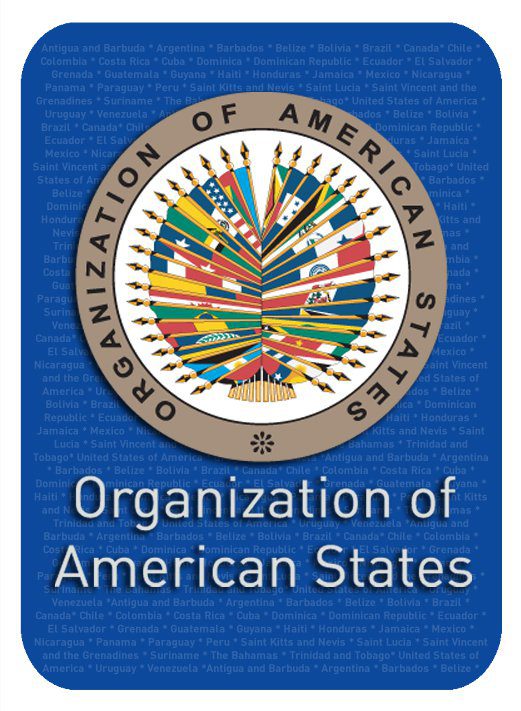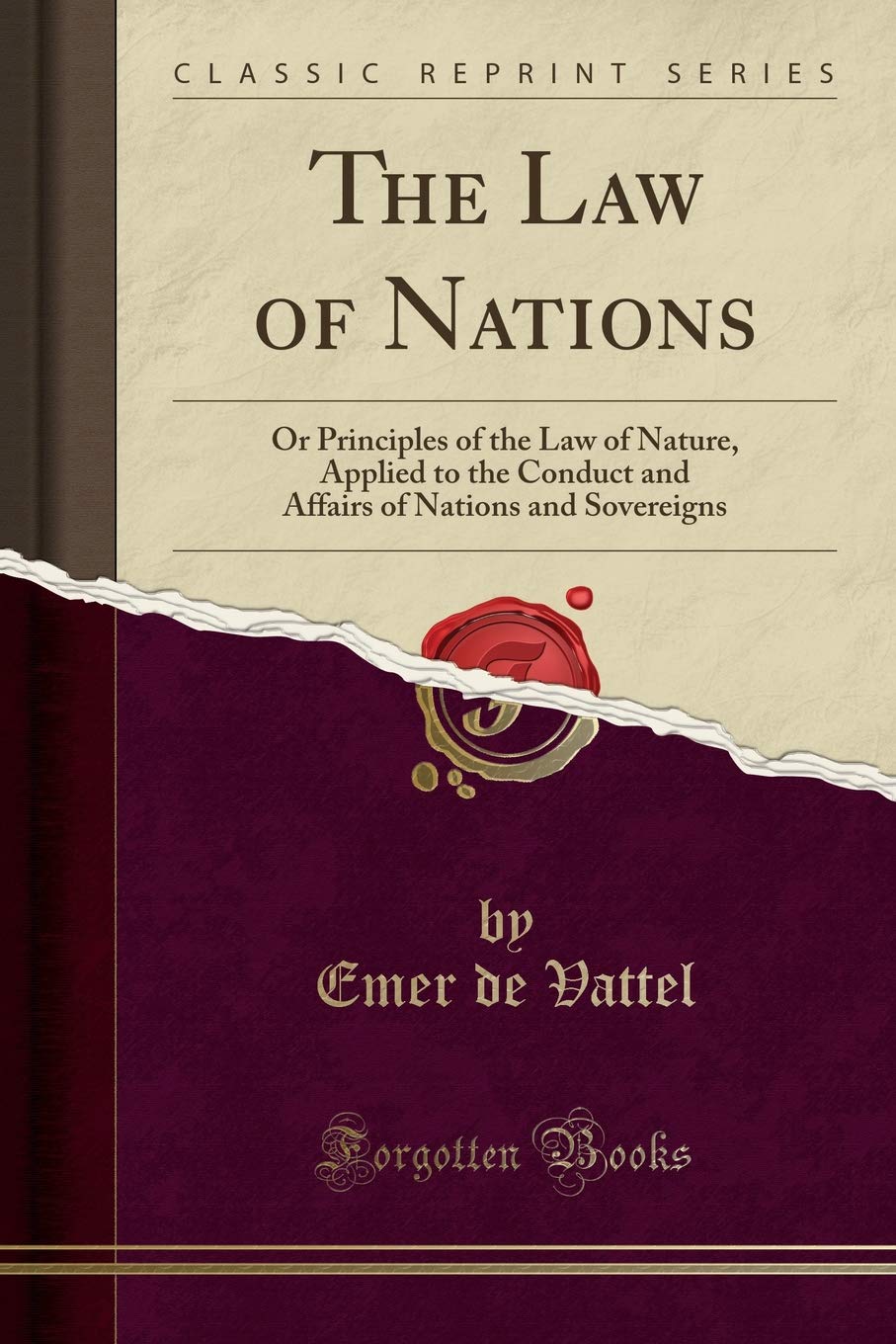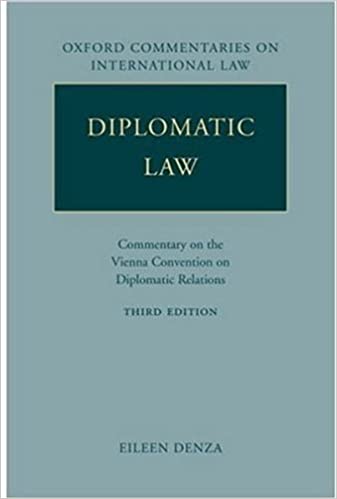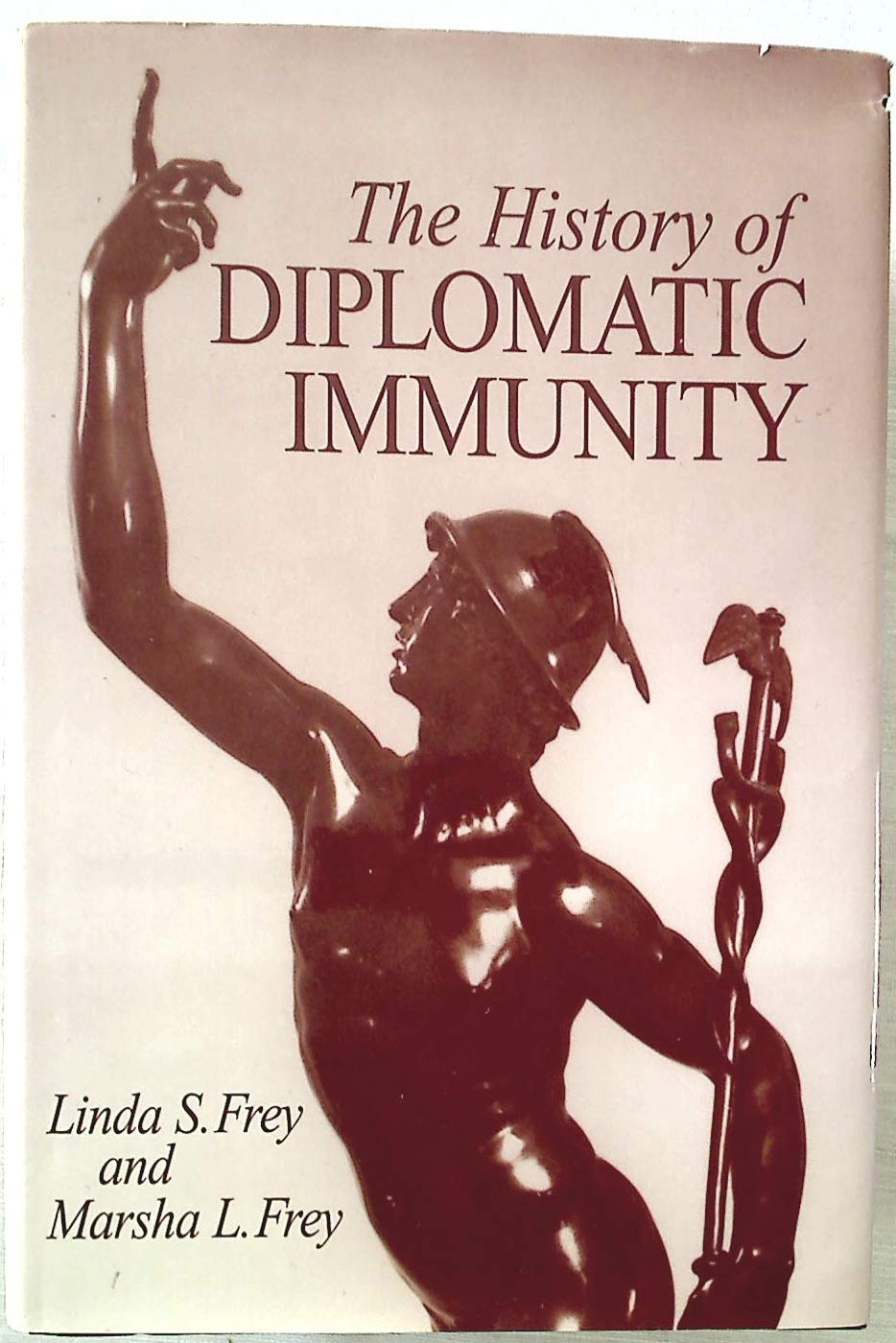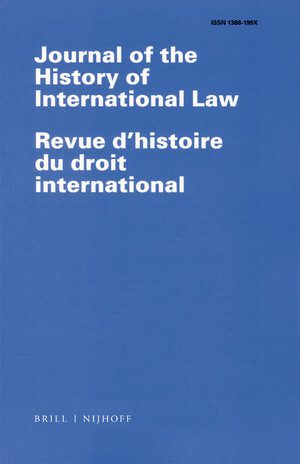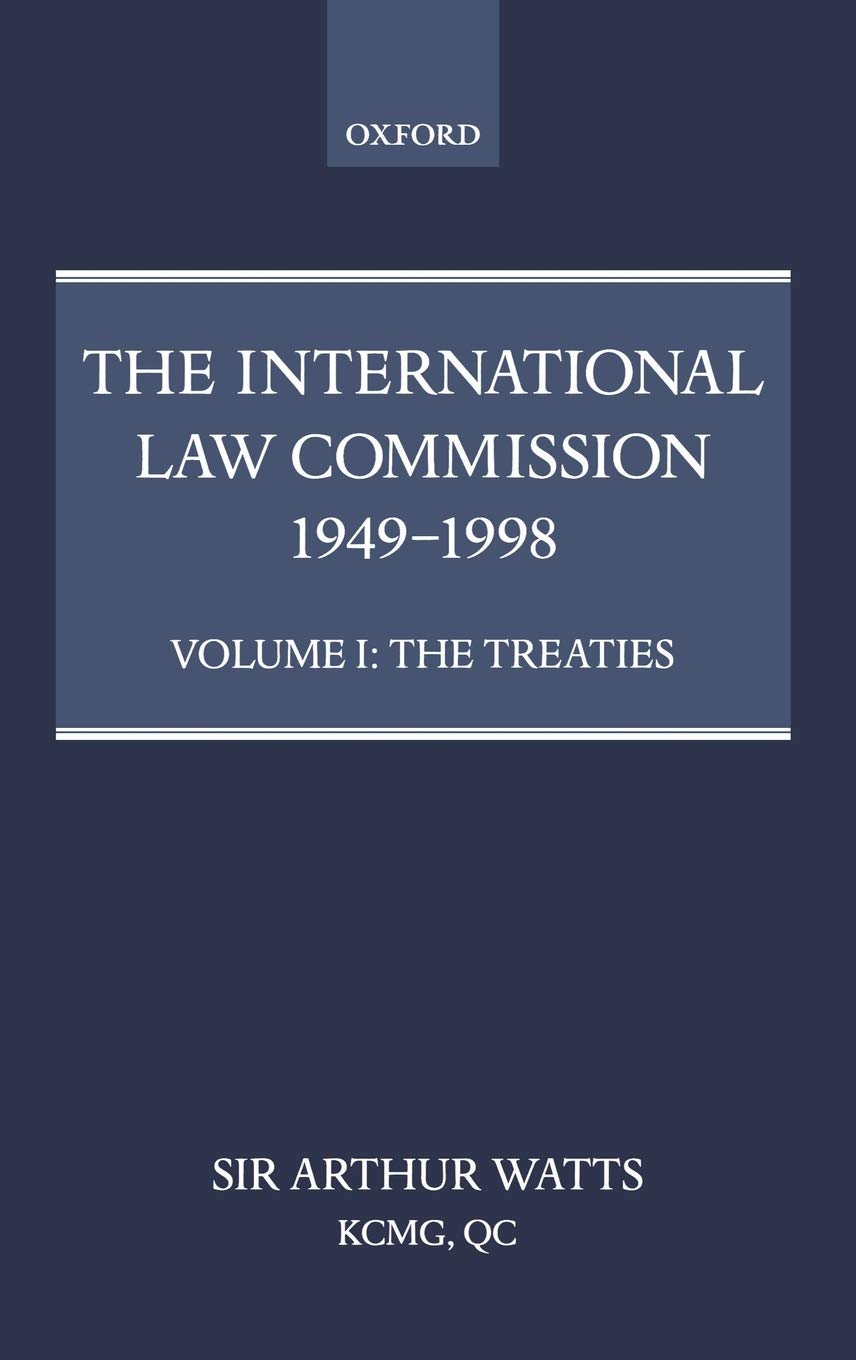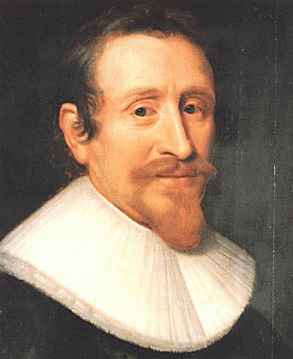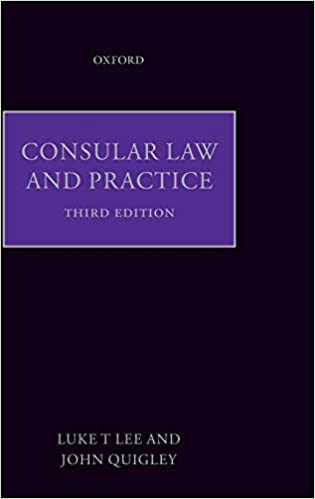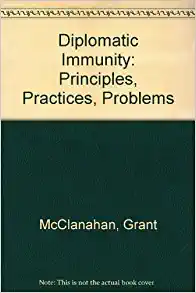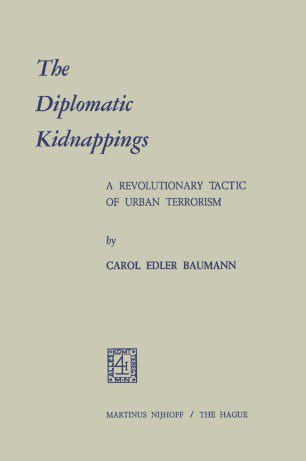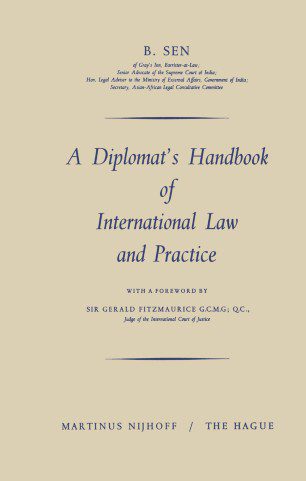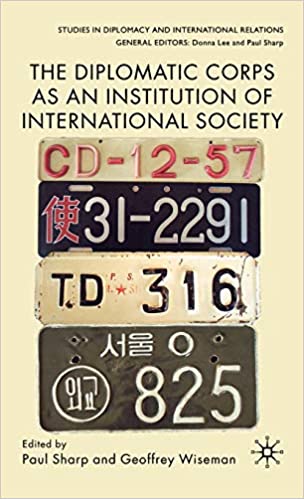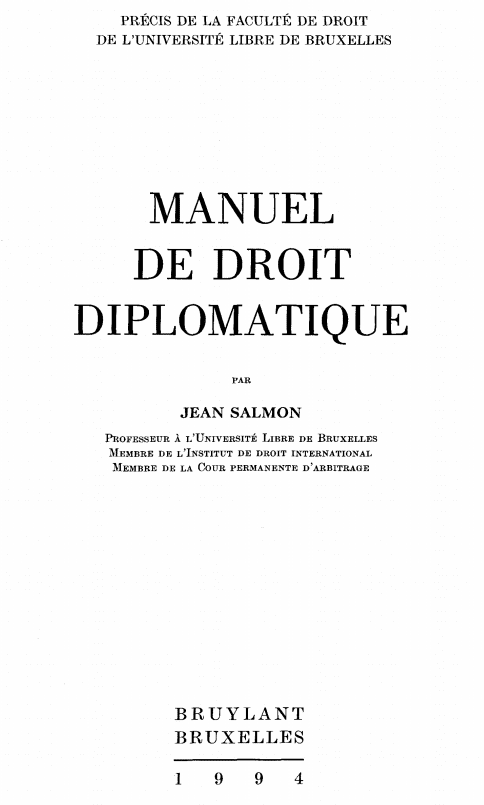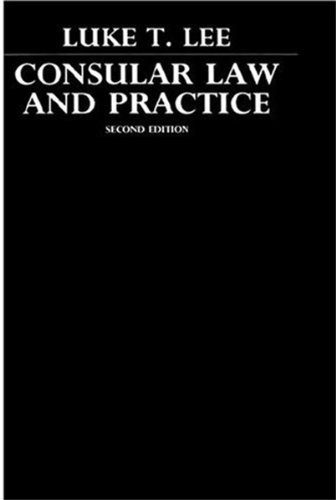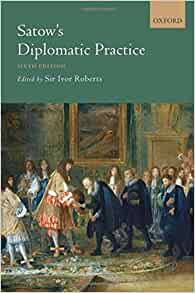TEXT OF THE CONVENTION
Done at Vienna on 18 April 1961. Entered into force on 24 April 1964. United Nations, Treaty Series, vol. 500, p. 95.
The States Parties to the present Convention,
Recalling that peoples of all nations from ancient times have recognized the status of diplomatic agents,
Having in mind the purposes and principles of the Charter of the United Nations concerning the sovereign equality of States, the maintenance of international peace and security, and the promotion of friendly relations among nations,
Believing that an international convention on diplomatic intercourse, privileges and immunities would contribute to the development of friendly relations among nations, irrespective of their differing constitutional and social systems,
Realizing that the purpose of such privileges and immunities is not to benefit individuals but to ensure the efficient performance of the functions of diplomatic missions as representing States,
Affirming that the rules of customary international law should continue to govern questions not expressly regulated by the provisions of the present Convention,
Have agreed as follows:
Article 1
For the purpose of the present Convention, the following expressions shall have the meanings hereunder assigned to them:
(a) The “head of the mission” is the person charged by the sending State with the duty of acting in that capacity;
(b) The “members of the mission” are the head of the mission and the members of the staff of the mission;
(c) The “members of the staff of the mission” are the members of the diplomatic staff, of the administrative and technical staff and of the service staff of the mission;
(d) The “members of the diplomatic staff” are the members of the staff of the mission having diplomatic rank;
(e) A “diplomatic agent” is the head of the mission or a member of the diplomatic staff of the mission;
(f) The “members of the administrative and technical staff” are the members of the staff of the mission employed in the administrative and technical service of the mission;
(g) The “members of the service staff” are the members of the staff of the mission in the domestic service of the mission;
(h) A “private servant” is a person who is in the domestic service of a member of the mission and who is not an employee of the sending State;
(i) The “premises of the mission” are the buildings or parts of buildings and the land ancillary thereto, irrespective of ownership, used for the purposes of the mission including the residence of the head of the mission.
Article 2
The establishment of diplomatic relations between States, and of permanent diplomatic missions, takes place by mutual consent.
Article 3
1. The functions of a diplomatic mission consist, inter alia, in:
(a) Representing the sending State in the receiving State;
(b) Protecting in the receiving State the interests of the sending State and of its nationals, within the limits permitted by international law;
(c) Negotiating with the Government of the receiving State;
(d) Ascertaining by all lawful means conditions and developments in the receiving State, and reporting thereon to the Government of the sending State;
(e) Promoting friendly relations between the sending State and the receiving State, and developing their economic, cultural and scientific relations.
2. Nothing in the present Convention shall be construed as preventing the performance of consular functions by a diplomatic mission.
Article 4
1. The sending State must make certain that the agrément of the receiving State has been given for the person it proposes to accredit as head of the mission to that State.
2. The receiving State is not obliged to give reasons to the sending State for a refusal of agrément.
Article 5
1. The sending State may, after it has given due notification to the receiving States concerned, accredit a head of mission or assign any member of the diplomatic staff, as the case may be, to more than one State, unless there is express objection by any of the receiving States.
2. If the sending State accredits a head of mission to one or more other States it may establish a diplomatic mission headed by a chargé d’affaires ad interim in each State where the head of mission has not his permanent seat.
3. A head of mission or any member of the diplomatic staff of the mission may act as representative of the sending State to any international organization.
Article 6
Two or more States may accredit the same person as head of mission to another State, unless objection is offered by the receiving State.
Article 7
Subject to the provisions of articles 5, 8, 9 and 11, the sending State may freely appoint the members of the staff of the mission. In the case of military, naval or air attachés, the receiving State may require their names to be submitted beforehand, for its approval.
Article 8
1. Members of the diplomatic staff of the mission should in principle be of the nationality of the sending State.
2. Members of the diplomatic staff of the mission may not be appointed from among persons having the nationality of the receiving State, except with the consent of that State which may be withdrawn at any time.
3. The receiving State may reserve the same right with regard to nationals of a third State who are not also nationals of the sending State.
Article 9
1. The receiving State may at any time and without having to explain its decision, notify the sending State that the head of the mission or any member of the diplomatic staff of the mission is persona non grata or that any other member of the staff of the mission is not acceptable. In any such case, the sending State shall, as appropriate, either recall the person concerned or terminate his functions with the mission. A person may be declared non grata or not acceptable before arriving in the territory of the receiving State.
2. If the sending State refuses or fails within a reasonable period to carry out its obligations under paragraph 1 of this article, the receiving State may refuse to recognize the person concerned as a member of the mission.
Article 10
1. The Ministry for Foreign Affairs of the receiving State, or such other ministry as may be agreed, shall be notified of:
(a) The appointment of members of the mission, their arrival and their final departure or the termination of their functions with the mission;
(b) The arrival and final departure of a person belonging to the family of a member of the mission and, where appropriate, the fact that a person becomes or ceases to be a member of the family of a member of the mission;
(c) The arrival and final departure of private servants in the employ of persons referred to in subparagraph (a) of this paragraph and, where appropriate, the fact that they are leaving the employ of such persons;
(d) The engagement and discharge of persons resident in the receiving State as members of the mission or private servants entitled to privileges and immunities.
2. Where possible, prior notification of arrival and final departure shall also be given.
Article 11
1. In the absence of specific agreement as to the size of the mission, the receiving State may require that the size of a mission be kept within limits considered by it to be reasonable and normal, having regard to circumstances and conditions in the receiving State and to the needs of the particular mission.
2. The receiving State may equally, within similar bounds and on a non-discriminatory basis, refuse to accept officials of a particular category.
Article 12
The sending State may not, without the prior express consent of the receiving State, establish offices forming part of the mission in localities other than those in which the mission itself is established.
Article 13
1. The head of the mission is considered as having taken up his functions in the receiving State either when he has presented his credentials or when he has notified his arrival and a true copy of his credentials has been presented to the Ministry for Foreign Affairs of the receiving State, or such other ministry as may be agreed, in accordance with the practice prevailing in the receiving State which shall be applied in a uniform manner.
2. The order of presentation of credentials or of a true copy thereof will be determined by the date and time of the arrival of the head of the mission.
Article 14
1. Heads of mission are divided into three classes, namely:
(a) That of ambassadors or nuncios accredited to Heads of State, and other heads of mission of equivalent rank;
(b) That of envoys, ministers and internuncios accredited to Heads of State;
(c) That of chargés d’affaires accredited to Ministers for Foreign Affairs.
2. Except as concerns precedence and etiquette, there shall be no differentiation between heads of mission by reason of their class.
Article 15
The class to which the heads of their missions are to be assigned shall be agreed between States. Article 16
1. Heads of mission shall take precedence in their respective classes in the order of the date and time of taking up their functions in accordance with article 13.
2. Alterations in the credentials of a head of mission not involving any change of class shall not affect his precedence.
3. This article is without prejudice to any practice accepted by the receiving State regarding the precedence of the representative of the Holy See.
Article 17
The precedence of the members of the diplomatic staff of the mission shall be notified by the head of the mission to the Ministry for Foreign Affairs or such other ministry as may be agreed.
Article 18
The procedure to be observed in each State for the reception of heads of mission shall be uniform in respect of each class.
Article 19
1. If the post of head of the mission is vacant, or if the head of the mission is unable to perform his functions a chargé d’affaires ad interim shall act provisionally as head of the mission. The name of the chargé d’affaires ad interim shall be notified, either by the head of the mission or, in case he is unable to do so, by the Ministry for Foreign Affairs of the sending State to the Ministry for Foreign Affairs of the receiving State or such other ministry as may be agreed.
2. In cases where no member of the diplomatic staff of the mission is present in the receiving State, a member of the administrative and technical staff may, with the consent of the receiving State, be designated by the sending State to be in charge of the current administrative affairs of the mission.
Article 20
The mission and its head shall have the right to use the flag and emblem of the sending State on the premises of the mission, including the residence of the head of the mission, and on his means of transport.
Article 21
1. The receiving State shall either facilitate the acquisition on its territory, in accordance with its laws, by the sending State of premises necessary for its mission or assist the latter in obtaining accommodation in some other way.
2. It shall also, where necessary, assist missions in obtaining suitable accommodation for their members.
Article 22
1. The premises of the mission shall be inviolable. The agents of the receiving State may not enter them, except with the consent of the head of the mission.
2. The receiving State is under a special duty to take all appropriate steps to protect the premises of the mission against any intrusion or damage and to prevent any disturbance of the peace of the mission or impairment of its dignity.
3. The premises of the mission, their furnishings and other property thereon and the means of transport of the mission shall be immune from search, requisition, attachment or execution.
Article 23
1. The sending State and the head of the mission shall be exempt from all national, regional or municipal dues and taxes in respect of the premises of the mission, whether owned or leased, other than such as represent payment for specific services rendered.
2. The exemption from taxation referred to in this article shall not apply to such dues and taxes payable under the law of the receiving State by persons contracting with the sending State or the head of the mission.
Article 24
The archives and documents of the mission shall be inviolable at any time and wherever they may be.
Article 25
The receiving State shall accord full facilities for the performance of the functions of the mission. Article 26
Subject to its laws and regulations concerning zones entry into which is prohibited or regulated for reasons of national security, the receiving State shall ensure to all members of the mission freedom of movement and travel in its territory.
Article 27
1. The receiving State shall permit and protect free communication on the part of the mission for all official purposes. In communicating with the Government and the other missions and consulates of the sending State, wherever situated, the mission may employ all appropriate means, including diplomatic couriers and messages in code or cipher. However, the mission may install and use a wireless transmitter only with the consent of the receiving State.
2. The official correspondence of the mission shall be inviolable. Official correspondence means all correspondence relating to the mission and its functions.
3. The diplomatic bag shall not be opened or detained.
4. The packages constituting the diplomatic bag must bear visible external marks of their character and may contain only diplomatic documents or articles intended for official use.
5. The diplomatic courier, who shall be provided with an official document indicating his status and the number of packages constituting the diplomatic bag, shall be protected by the receiving State in the performance of his functions. He shall enjoy person inviolability and shall not be liable to any form of arrest or detention.
6. The sending State or the mission may designate diplomatic couriers ad hoc. In such cases the provisions of paragraph 5 of this article shall also apply, except that the immunities therein mentioned shall cease to apply when such a courier has delivered to the consignee the diplomatic bag in his charge.
7. A diplomatic bag may be entrusted to the captain of a commercial aircraft scheduled to land at an authorized port of entry. He shall be provided with an official document indicating the number of packages constituting the bag but he shall not be considered to be a diplomatic courier. The mission may send one of its members to take possession of the diplomatic bag directly and freely from the captain of the aircraft.
Article 28
The fees and charges levied by the mission in the course of its official duties shall be exempt from all dues and taxes.
Article 29
The person of a diplomatic agent shall be inviolable. He shall not be liable to any form of arrest or detention. The receiving State shall treat him with due respect and shall take all appropriate steps to prevent any attack on his person, freedom or dignity.
Article 30
1. The private residence of a diplomatic agent shall enjoy the same inviolability and protection as the premises of the mission.
2. His papers, correspondence and, except as provided in paragraph 3 of article 31, his property, shall likewise enjoy inviolability.
Article 31
1. A diplomatic agent shall enjoy immunity from the criminal jurisdiction of the receiving State. He shall also enjoy immunity from its civil and administrative jurisdiction, except in the case of:
(a) A real action relating to private immovable property situated in the territory of the receiving State, unless he holds it on behalf of the sending State for the purposes of the mission;
(b) An action relating to succession in which the diplomatic agent is involved as executor, administrator, heir or legatee as a private person and not on behalf of the sending State;
(c) An action relating to any professional or commercial activity exercised by the diplomatic agent in the receiving State outside his official functions.
2. A diplomatic agent is not obliged to give evidence as a witness.
3. No measures of execution may be taken in respect of a diplomatic agent except in the cases coming under subparagraphs (a), (b) and (c) of paragraph 1 of this article, and provided that the measures concerned can be taken without infringing the inviolability of his person or of his residence.
4. The immunity of a diplomatic agent from the jurisdiction of the receiving State does not exempt him from the jurisdiction of the sending State.
Article 32
1. The immunity from jurisdiction of diplomatic agents and of persons enjoying immunity under article 37 may be waived by the sending State.
2. Waiver must always be express.
3. The initiation of proceedings by a diplomatic agent or by a person enjoying immunity from jurisdiction under article 37 shall preclude him from invoking immunity from jurisdiction in respect of any counterclaim directly connected with the principal claim.
4. Waiver of immunity from jurisdiction in respect of civil or administrative proceedings shall not be held to imply waiver of immunity in respect of the execution of the judgement, for which a separate waiver shall be necessary.
Article 33
1. Subject to the provisions of paragraph 3 of this article, a diplomatic agent shall with respect to services rendered for the sending State be exempt from social security provisions which may be in force in the receiving State.
2. The exemption provided for in paragraph 1 of this article shall also apply to private servants who are in the sole employ of a diplomatic agent, on condition:
(a) That they are not nationals of or permanently resident in the receiving State; and
(b) That they are covered by the social security provisions which may be in force in the sending State or a third State.
3. A diplomatic agent who employs persons to whom the exemption provided for in paragraph 2 of this article does not apply shall observe the obligations which the social security provisions of the receiving State impose upon employers.
4. The exemption provided for in paragraphs 1 and 2 of this article shall not preclude voluntary participation in the social security system of the receiving State provided that such participation is permitted by that State.
5. The provisions of this article shall not affect bilateral or multilateral agreements concerning social security concluded previously and shall not prevent the conclusion of such agreements in the future.
Article 34
A diplomatic agent shall be exempt from all dues and taxes, personal or real, national, regional or municipal, except:
(a) Indirect taxes of a kind which are normally incorporated in the price of goods or services;
(b) Dues and taxes on private immovable property situated in the territory of the receiving State, unless he holds it on behalf of the sending State for the purposes of the mission;
(c) Estate, succession or inheritance duties levied by the receiving State, subject to the provisions of paragraph 4 of article 39;
(d) Dues and taxes on private income having its source in the receiving State and capital taxes on investments made in commercial undertakings in the receiving State;
(e) Charges levied for specific services rendered;
(f) Registration, court or record fees, mortgage dues and stamp duty, with respect to immovable property, subject to the provisions of article 23.
Article 35
The receiving State shall exempt diplomatic agents from all personal services, from all public service of any kind whatsoever, and from military obligations such as those connected with requisitioning, military contributions and billeting.
Article 36
1. The receiving State shall, in accordance with such laws and regulations as it may adopt, permit entry of and grant exemption from all customs duties, taxes, and related charges other than charges for storage, cartage and similar services, on:
(a) Articles for the official use of the mission;
(b) Articles for the personal use of a diplomatic agent or members of his family forming part of his household, including articles intended for his establishment.
2. The personal baggage of a diplomatic agent shall be exempt from inspection, unless there are serious grounds for presuming that it contains articles not covered by the exemptions mentioned in paragraph 1 of this article, or articles the import or export of which is prohibited by the law or controlled by the quarantine regulations of the receiving State. Such inspection shall be conducted only in the presence of the diplomatic agent or of his authorized representative.
Article 37
1. The members of the family of a diplomatic agent forming part of his household shall, if they are not nationals of the receiving State, enjoy the privileges and immunities specified in articles 29 to 36.
2. Members of the administrative and technical staff of the mission, together with members of their families forming part of their respective households, shall, if they are not nationals of or permanently resident in the receiving State, enjoy the privileges and immunities specified in articles 29 to 35, except that the immunity from civil and administrative jurisdiction of the receiving State specified in paragraph 1 of article 31 shall not extend to acts performed outside the course of their duties. They shall also enjoy the privileges specified in article 36, paragraph 1, in respect of articles imported at the time of first installation.
3. Members of the service staff of the mission who are not nationals of or permanently resident in the receiving State shall enjoy immunity in respect of acts performed in the course of their duties, exemption from dues and taxes on the emoluments they receive by reason of their employment and the exemption contained in article 33.
4. Private servants of members of the mission shall, if they are not nationals of or permanently resident in the receiving State, be exempt from dues and taxes on the emoluments they receive by reason of their employment. In other respects, they may enjoy privileges and immunities only to the extent admitted by the receiving State. However, the receiving State must exercise its jurisdiction over those persons in such a manner as not to interfere unduly with the performance of the functions of the mission.
Article 38
1. Except insofar as additional privileges and immunities may be granted by the receiving State, a diplomatic agent who is a national of or permanently resident in that State shall enjoy only immunity from jurisdiction, and inviolability, in respect of official acts performed in the exercise of his functions.
2. Other members of the staff of the mission and private servants who are nationals of or permanently resident in the receiving State shall enjoy privileges and immunities only to the extent admitted by the receiving State. However, the receiving State must exercise its jurisdiction over those persons in such a manner as not to interfere unduly with the performance of the functions of the mission.
Article 39
1. Every person entitled to privileges and immunities shall enjoy them from the moment he enters the territory of the receiving State on proceeding to take up his post or, if already in its territory, from the moment when his appointment is notified to the Ministry for Foreign Affairs or such other ministry as may be agreed.
2. When the functions of a person enjoying privileges and immunities have come to an end, such privileges and immunities shall normally cease at the moment when he leaves the country, or on expiry of a reasonable period in which to do so, but shall subsist until that time, even in case of armed conflict. However, with respect to acts performed by such a person in the exercise of his functions as a member of the mission, immunity shall continue to subsist.
3. In case of the death of a member of the mission, the members of his family shall continue to enjoy the privileges and immunities to which they are entitled until the expiry of a reasonable period in which to leave the country.
4. In the event of the death of a member of the mission not a national of or permanently resident in the receiving State or a member of his family forming part of his household, the receiving State shall permit the withdrawal of the movable property of the deceased, with the exception of any property acquired in the country the export of which was prohibited at the time of his death. Estate, succession and inheritance duties shall not be levied on movable property the presence of which in the receiving State was due solely to the presence there of the deceased as a member of the mission or as a member of the family of a member of the mission.
Article 40
1. If a diplomatic agent passes through or is in the territory of a third State, which has granted him a passport visa if such visa was necessary, while proceeding to take up or to return to his post, or when returning to his own country, the third State shall accord him inviolability and such other immunities as may be required to ensure his transit or return. The same shall apply in the case of any members of his family enjoying privileges or immunities who are accompanying the diplomatic agent, or travelling separately to join him or to return to their country.
2. In circumstances similar to those specified in paragraph 1 of this article, third States shall not hinder the passage of members of the administrative and technical or service staff of a mission, and of members of their families, through their territories.
3. Third States shall accord to official correspondence and other official communications in transit, including messages in code or cipher, the same freedom and protection as is accorded by the receiving State. They shall accord to diplomatic couriers, who have been granted a passport visa if such visa was necessary, and diplomatic bags in transit, the same inviolability and protection as the receiving State is bound to accord.
4. The obligations of third States under paragraphs 1, 2 and 3 of this article shall also apply to the persons mentioned respectively in those paragraphs, and to official communications and diplomatic bags, whose presence in the territory of the third State is due to force majeure.
Article 41
1. Without prejudice to their privileges and immunities, it is the duty of all persons enjoying such privileges and immunities to respect the laws and regulations of the receiving State. They also have a duty not to interfere in the internal affairs of that State.
2. All official business with the receiving State entrusted to the mission by the sending State shall be conducted with or through the Ministry for Foreign Affairs of the receiving State or such other ministry as may be agreed.
3. The premises of the mission must not be used in any manner incompatible with the functions of the mission as laid down in the present Convention or by other rules of general international law or by any special agreements in force between the sending and the receiving State.
Article 42
A diplomatic agent shall not in the receiving State practise for personal profit any professional or commercial activity.
Article 43
The function of a diplomatic agent comes to an end, inter alia:
(a) On notification by the sending State to the receiving State that the function of the diplomatic agent has come to an end;
(b) On notification by the receiving State to the sending State that, in accordance with paragraph 2 of article 9, it refuses to recognize the diplomatic agent as a member of the mission.
Article 44
The receiving State must, even in case of armed conflict, grant facilities in order to enable persons enjoying privileges and immunities, other than nationals of the receiving State, and members of the families of such persons irrespective of their nationality, to leave at the earliest possible moment. It must, in particular, in case of need, place at their disposal the necessary means of transport for themselves and their property.
Article 45
If diplomatic relations are broken off between two States, or if a mission is permanently or temporarily recalled:
(a) The receiving State must, even in case of armed conflict, respect and protect the premises of the mission, together with its property and archives;
(b) The sending State may entrust the custody of the premises of the mission, together with its property and archives, to a third State acceptable to the receiving State;
(c) The sending State may entrust the protection of its interests and those of its nationals to a third State acceptable to the receiving State.
Article 46
A sending State may with the prior consent of a receiving State, and at the request of a third State not represented in the receiving State, undertake the temporary protection of the interests of the third State and of its nationals.
Article 47
1. In the application of the provisions of the present Convention, the receiving State shall not discriminate as between States.
2. However, discrimination shall not be regarded as taking place:
(a) Where the receiving State applies any of the provisions of the present Convention restrictively because of a restrictive application of that provision to its mission in the sending State;
(b) Where by custom or agreement States extend to each other more favourable treatment than is required by the provisions of the present Convention.
Article 48
The present Convention shall be open for signature by all States Members of the United Nations or of any of the specialized agencies Parties to the Statute of the International Court of Justice, and by any other State invited by the General Assembly of the United Nations to become a Party to the Convention, as follows: until 31 October 1961 at the Federal Ministry for Foreign Affairs of Austria and subsequently, until 31 March 1962, at the United Nations Headquarters in New York.
Article 49
The present Convention is subject to ratification. The instruments of ratification shall be deposited with the Secretary-General of the United Nations.
Article 50
The present Convention shall remain open for accession by any State belonging to any of the four categories mentioned in article 48. The instruments of accession shall be deposited with the Secretary General of the United Nations.
Article 51
1. The present Convention shall enter into force on the thirtieth day following the date of deposit of the twenty-second instrument of ratification or accession with the Secretary-General of the United Nations.
2. For each State ratifying or acceding to the Convention after the deposit of the twenty-second instrument of ratification or accession, the Convention shall enter into force on the thirtieth day after deposit by such State of its instrument of ratification or accession.
Article 52
The Secretary-General of the United Nations shall inform all States belonging to any of the four categories mentioned in article 48:
(a) Of signatures to the present Convention and of the deposit of instruments of ratification or accession, in accordance with articles 48, 49 and 50;
(b) Of the date on which the present Convention will enter into force, in accordance with article 51. Article 53
The original of the present Convention, of which the Chinese, English, French, Russian and Spanish texts are equally authentic, shall be deposited with the Secretary-General of the United Nations, who shall send certified copies thereof to all States belonging to any of the four categories mentioned in article 48.
IN WITNESS WHEREOF the undersigned Plenipotentiaries, being duly authorized thereto by their respective Governments, have signed the present Convention.
DONE at Vienna this eighteenth day of April one thousand nine hundred and sixty-one.




